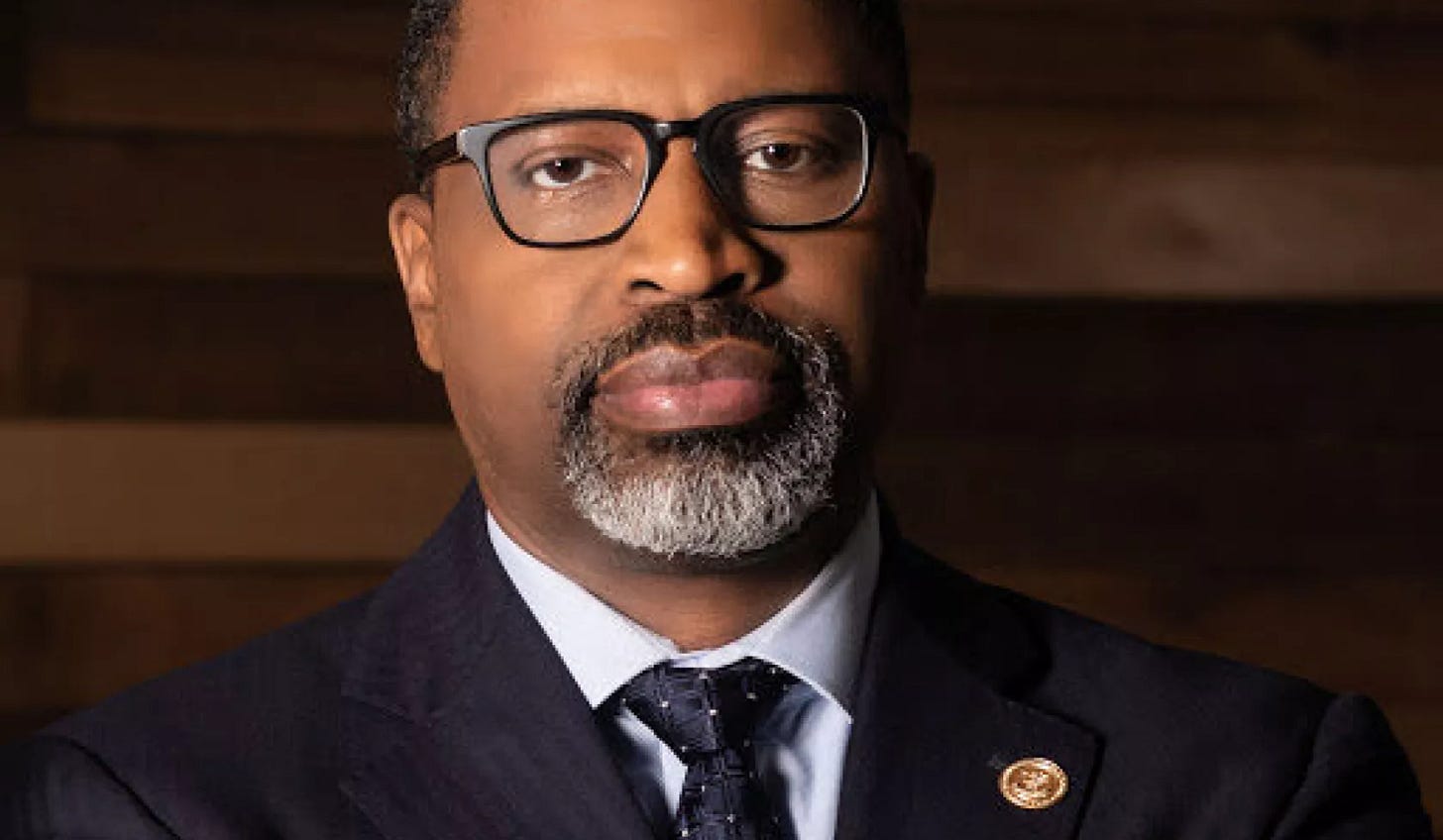The State Bar of Texas recently made a controversial move by pulling back an invitation it had extended to NAACP President and CEO Derrick Johnson. He was supposed to speak at the Bar’s annual meeting this June in San Antonio—specifically on Juneteenth, a day commemorating the end of slavery in the U.S.
But the Bar changed course after the NAACP joined a lawsuit challenging the Trump administration’s plan to dismantle the Education Department. The Bar cited its new rules aimed at steering clear of anything that could be seen as political.
Johnson said the cancellation caught him completely off guard.
“They have decided to censure free speech on notions of being political when it’s not political,” he told The Associated Press. “This is the State Bar of Texas. These are lawyers who are sworn to uphold the Constitution of the United States. And nothing about our actions is contrary to the very principles that they have sworn to uphold. And so, I find it ironic to say the least that a lawsuit would generate a rescission of the invitation.”
The lawsuit, filed in March by the NAACP along with other civil rights and education organizations, argues that dismantling the Education Department would harm key functions like fighting discrimination and funding educational programs.
Trey Apffel, the executive director of the Texas Bar, said the invitation was rescinded because the lawsuit conflicted with the Bar’s obligation to remain politically neutral. He said they only learned about the lawsuit after it was reported in the media.
He pointed to a 2023 ruling from the 5th U.S. Circuit Court of Appeals and guidance from the Texas Supreme Court, which say the Bar must stay away from anything that even appears political or ideological.
According to Apffel, the lawsuit “is taking on the federal government on an executive order of the president,” which they viewed as political.
But Johnson disagrees.
“It is a case questioning whether or not there is constitutional authority for the president to take a certain action. That’s not political. That’s the job of lawyers. That is the job of the NAACP,” he said.
He also said that back in February, during a call with Apffel and other Bar leaders, he was asked to avoid making his speech political—and he agreed to do so.
In a letter to the Bar sent just before the announcement, Johnson called out what he saw as a double standard. He pointed to the 2023 annual meeting where former U.S. Attorney General William Barr was invited to speak—despite significant backlash over his actions during the Trump administration, particularly around the 2020 election.
Critics questioned why Barr, who allowed investigations into voter fraud claims before the election was certified, was given a platform—yet Johnson’s invitation was revoked.
Apffel defended Barr’s appearance, saying at the time he was a former official whose legal insights—whether pro- or anti-Trump—were relevant to lawyers. But, Apffel added, under the Bar’s current stricter rules, Barr wouldn’t be invited to speak today.
“I have great respect for Derrick Johnson and his position as president of the NAACP,” Apffel said. “And I have great respect for the NAACP and what they do and what they stand for.”
As for the Juneteenth event, Johnson will be replaced by Wallace B. Jefferson, the former Chief Justice of the Texas Supreme Court, who is Black. He’ll speak on the holiday’s significance.
Still, Johnson says this is about more than just a speaking gig.
“We are in an intersection point in our democracy,” he said. “Are we going to uphold the Constitution and ensure that this speech is something that we value, or are we going to take a different approach?”
Thanks for reading The Kicker! I’d love to hear your thoughts—what kind of message does it send when the NAACP is considered too 'political' to speak, but William Barr isn’t? Drop your take below.
For more news be sure to subscribe to The Kicker and follow Ashlee Banks on Twitter, TikTok and Instagram @ashleembanks.




